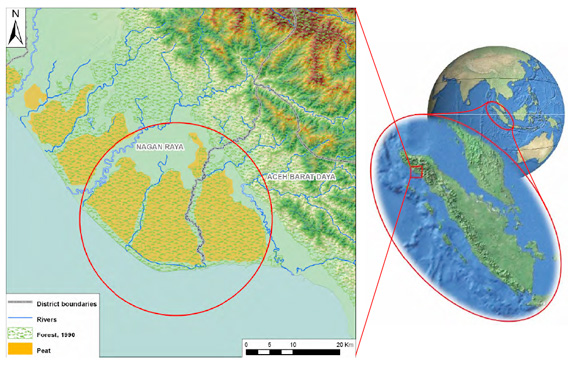Aceh Governor Zaini Abdullah officially revoked the business permit for a company developing a controversial oil palm plantation in a peat swamp in Sumatra, concluding a case that had tested Indonesia’s commitment to a moratorium on new concessions in peatlands and rainforests.
Abdullah revoked palm oil company PT Kallista Alam’s permit on Thursday after an Indonesian court instructed him to do so. Earlier the central government’s REDD+ task force concluded the plantation in the Tripa peatland violated multiple regulations.
“This is the first in the history of the Government of Aceh,” said Makmur Ibrahim, Head of the Legal and PR Office of the Aceh Regional Secretariat.
The permit allowing PT Kallista Alam to establish a 1,605-hectare plantation in the Tripa peat swamp was controversial because it violated a country-wide moratorium on new concessions in peatlands and primary forests issued in 2011 by Indonesian president Susilo Bambang Yudhoyono. The concession was granted by the former Aceh governor Irwandi Yusuf more than three months after the moratorium went into effect.
A local environmental group — the Aceh chapter Walhi — filed suit against PT Kallista Alam and the Aceh government to test the central government’s commitment to the moratorium. The case garnered international interest for both its egregious nature — multiple regulations should have protected the land from conversion — and the presence of critically endangered orangutans. Local communities were also opposed to the plantation, bringing in a human rights element as well.
PT Kallista Alam is also the subject of a police investigation for illegal burning, according to The Jakarta Post.
Over the past 20 years Indonesia has had one of the highest rates of forest loss in the world, but in 2009 Indonesian Yudhoyono pledged to reduce deforestation as part of a commitment to slow greenhouse gas emissions. Under his “7/26” plan, Indonesia aims to reduce emissions by at least 26 percent — and up to 41 percent with international support — by 2020 relative to a business-as-usual scenario. Norway has committed up to $1 billion to support the initiative.
Related articles








